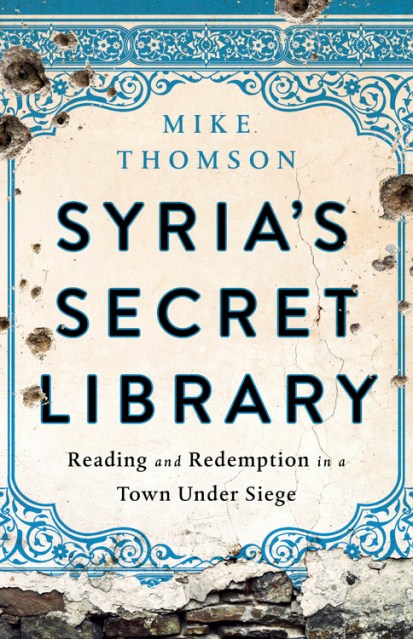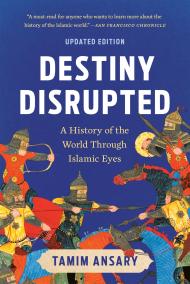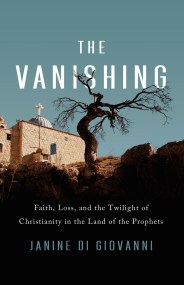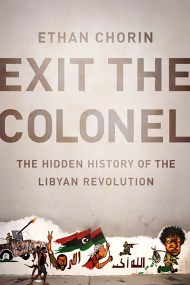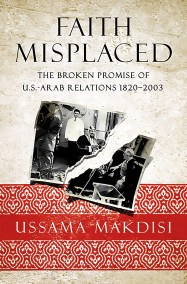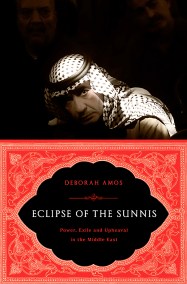By clicking “Accept,” you agree to the use of cookies and similar technologies on your device as set forth in our Cookie Policy and our Privacy Policy. Please note that certain cookies are essential for this website to function properly and do not require user consent to be deployed.
Syria’s Secret Library
Reading and Redemption in a Town Under Siege
Contributors
By Mike Thomson
Formats and Prices
- On Sale
- Aug 20, 2019
- Page Count
- 320 pages
- Publisher
- PublicAffairs
- ISBN-13
- 9781541767621
Price
$37.00Price
$47.00 CADFormat
Format:
- Hardcover $37.00 $47.00 CAD
- ebook $15.99 $20.99 CAD
- Audiobook Download (Unabridged)
This item is a preorder. Your payment method will be charged immediately, and the product is expected to ship on or around August 20, 2019. This date is subject to change due to shipping delays beyond our control.
Buy from Other Retailers:
The remarkable story of a small, makeshift library in the town of Daraya, and the people who found hope and humanity in its books during a four-year siege.
Daraya lies on the fringe of Damascus, just southwest of the Syrian capital. Yet for four years it lived in another world. Besieged by government forces early in the Syrian Civil War, its people were deprived of food, bombarded by heavy artillery, and under the constant fire of snipers. But deep beneath this scene of frightening devastation lay a hidden library. While the streets above echoed with shelling and rifle fire, the secret world below was a haven of books.
Long rows of well-thumbed volumes lined almost every wall: bloated editions with grand leather covers, pocket-sized guides to Syrian poetry, and no-nonsense reference books, all arranged in well-ordered lines. But this precious horde was not bought from publishers or loaned by other libraries–they were the books salvaged and scavenged at great personal risk from the doomed city above.
The story of this extraordinary place and the people who found purpose and refuge in it is one of hope, human resilience, and above all, the timeless, universal love of literature and the compassion and wisdom it fosters.
Daraya lies on the fringe of Damascus, just southwest of the Syrian capital. Yet for four years it lived in another world. Besieged by government forces early in the Syrian Civil War, its people were deprived of food, bombarded by heavy artillery, and under the constant fire of snipers. But deep beneath this scene of frightening devastation lay a hidden library. While the streets above echoed with shelling and rifle fire, the secret world below was a haven of books.
Long rows of well-thumbed volumes lined almost every wall: bloated editions with grand leather covers, pocket-sized guides to Syrian poetry, and no-nonsense reference books, all arranged in well-ordered lines. But this precious horde was not bought from publishers or loaned by other libraries–they were the books salvaged and scavenged at great personal risk from the doomed city above.
The story of this extraordinary place and the people who found purpose and refuge in it is one of hope, human resilience, and above all, the timeless, universal love of literature and the compassion and wisdom it fosters.
Genre:
-
"Mike Thomson's relationship with the people of Daraya as they were being systematically smashed to pieces has produced one of the most extraordinary stories to come out of the Syrian conflict. The assembly of a library under almost daily threat of death and destruction is appalling and, at the same time, hugely inspiring. A unique tribute to the power of books and the unquenchable human spirit."Michael Palin, author and broadcaster
-
"An inspiring read-humanity at its best, overcoming adversity at the height of war with the power of love for their secret library."David Nott, author of War Doctor
-
"Writing in a clear and thoughtful style, Thomson obviously cares for the people he is reporting about. This book marries geopolitical understanding of Syria's war with deeply emotional stories of humans dealing with a horrifying reality in extraordinary ways."Booklist, starred
-
"A compassionate and inspiring portrait...Thomson's book may help the outside world better understand Syrians."New York Times Book Review
Newsletter Signup
By clicking ‘Sign Up,’ I acknowledge that I have read and agree to Hachette Book Group’s Privacy Policy and Terms of Use
